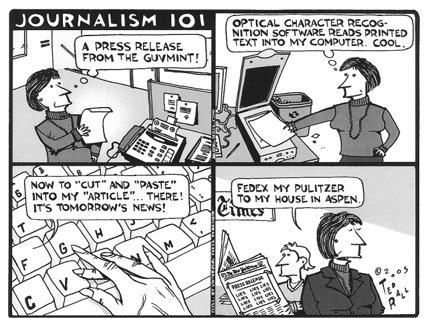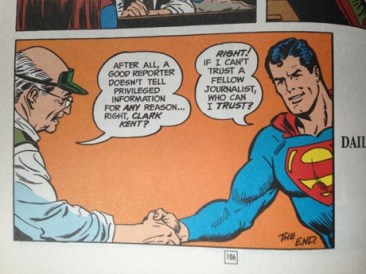Life is all about unlearning and relearning. The sooner you understand and accept this, the better it is for you to explore new avenues.
As someone who has always been fond of writing, I was super thrilled about studying journalism as part of my postgrad course. Shouldn’t be too hard for someone who can write, right? Well, not really.
Journalistic writing can be quite challenging. If you’re someone who has done mostly creative writing, there is a lot of unlearning to do. Needless to say, there is not much creativity that goes into a piece of the news report. Hard news reporting is merely stating facts that include the 5 Ws and 1 H (who, what, when, where, why and how).
When you’re writing a piece for any print organization (or even for new media), it’s important to ensure that the facts you state are accurate and that they are reported in unambiguous terms. 
Unlike a story or some other piece of creative writing where you wait till the climax to reveal something important, all crucial facts in a story should be stated in the first one or two paragraphs of a report. This style of reporting is a format called the inverted pyramid that a lot of print media organizations follow in their stories.
The language you use in the story is crucial. Remember that a newspaper is read by a wide plethora of media consumers from different segments. So ensure that you keep the language as simple as possible for it to be understood by everyone. If and when you have to use certain technical terms, it would be better to briefly explain them.
Another major factor when it comes to any piece of journalistic writing is credibility and newsworthiness. The credibility of a piece depends on the sources (primary or secondary) who vouch for what you’ve written in your report. Ensure you name your sources correctly. In case they want their names to remain confidential for security reasons, do not breach their trust and retain their anonymity. Newsworthiness, however, is a very tricky concept. Simply put, it actually refers to anything that is important enough for it to be considered “news”. In recent times, however, defining it has become hard. While some newspapers consider plunging necklines of a movie star as newsworthy, there are others that try to stick to conventional and traditional definitions of newsworthiness. So ensure you have a clear cut understanding of what newsworthiness is to you before you go ahead and write a report on something. Newsworthiness, in a nutshell, is any incident, report or decision that could have an impact on a large number of people. There are, of course, human interest stories and other soft news stories apart from them.
 Double check, or even triple check, facts and figures used in a piece. It is saddening to see quite a few websites (I shall refrain from mentioning names for my own good.) which spread fake news. Loss of credibility is easily one of the greatest threats to any print medium organization. So get your facts right. Follow up with sources if and when in doubt. Even if you’re writing a piece for a blog, an online website or any other new medium, it does not serve as an excuse for you to put up statements or facts that are not credible.
Double check, or even triple check, facts and figures used in a piece. It is saddening to see quite a few websites (I shall refrain from mentioning names for my own good.) which spread fake news. Loss of credibility is easily one of the greatest threats to any print medium organization. So get your facts right. Follow up with sources if and when in doubt. Even if you’re writing a piece for a blog, an online website or any other new medium, it does not serve as an excuse for you to put up statements or facts that are not credible.
All of this should be done keeping in mind the deadline for the story of course. If you’re writing an analytical piece for a column that has periodicity, you might have a little more time on your hands. However, if you cover hard news – politics, sports, business and other current affairs, it goes without saying that you would need to turn in your stories the next day. So make sure you get your facts right and ensure the credibility of your piece while keeping the language simple and precise.
Once you finish doing all this and think your piece is ready to go, you have two more important things to do – proofread and edit. Check for grammatical errors, spelling mistakes or even minor punctuation errors. Even the most proficient writers sometimes miss a comma or two (it might help to know beforehand whether the organization you’re writing the piece for, is for the Oxford comma or not), so always proofread what you write.
And finally, edit. Be ruthless. There are a lot of news stories that go into a single newspaper. The space you are allotted will depend on the importance of the story (as well as advertising space reserved for that particular day). But more often than not, your editor is going to chop off anything that is not required for the story. So it is better that you do your own editing before you turn in your story. Make sure your report is detailed and yet, concise. It’s not a piece of creative writing for you to ramble on and on. Keep that in mind. Avoid using flowery language. Such language might be okay if you’re working on features but not when it comes to hard news stories. Like I said, it’s all about unlearning and relearning.
newspaper. The space you are allotted will depend on the importance of the story (as well as advertising space reserved for that particular day). But more often than not, your editor is going to chop off anything that is not required for the story. So it is better that you do your own editing before you turn in your story. Make sure your report is detailed and yet, concise. It’s not a piece of creative writing for you to ramble on and on. Keep that in mind. Avoid using flowery language. Such language might be okay if you’re working on features but not when it comes to hard news stories. Like I said, it’s all about unlearning and relearning.
While you’re at it, there are a lot of brilliant pieces of journalistic writing from The Washington Post, The New York Times, Esquire or Rolling Stone that you should read. You will learn a lot just from reading these pieces. Here are a few of my favorites (they are not hard news stories though, so be prepared to read long pieces of amazing, investigative journalism). Trust me, they are worth your time!
- http://www.esquire.com/news-politics/a638/frank-sinatra-has-a-cold-gay-talese/
- https://www.washingtonpost.com/lifestyle/magazine/pearls-before-breakfast-can-one-of-the-nations-great-musicians-cut-through-the-fog-of-a-dc-rush-hour-lets-find-out/2014/09/23/8a6d46da-4331-11e4-b47c-f5889e061e5f_story.html?utm_term=.da24db758fbd
- http://www.rollingstone.com/culture/news/the-brilliant-life-and-tragic-death-of-aaron-swartz-20130215
About the Author:
 Nanditha is a Masters student majoring in Mass Communication. After her bachelors in Commerce, she worked with Google for a while before teaching primary school students in Chennai for a while. During the course of her Masters, she developed an interest in research as well as development communication. She loves critiquing movies, discussing good pieces of journalistic writing and watching culinary shows apart from reading books when she does find time for them.
Nanditha is a Masters student majoring in Mass Communication. After her bachelors in Commerce, she worked with Google for a while before teaching primary school students in Chennai for a while. During the course of her Masters, she developed an interest in research as well as development communication. She loves critiquing movies, discussing good pieces of journalistic writing and watching culinary shows apart from reading books when she does find time for them.
